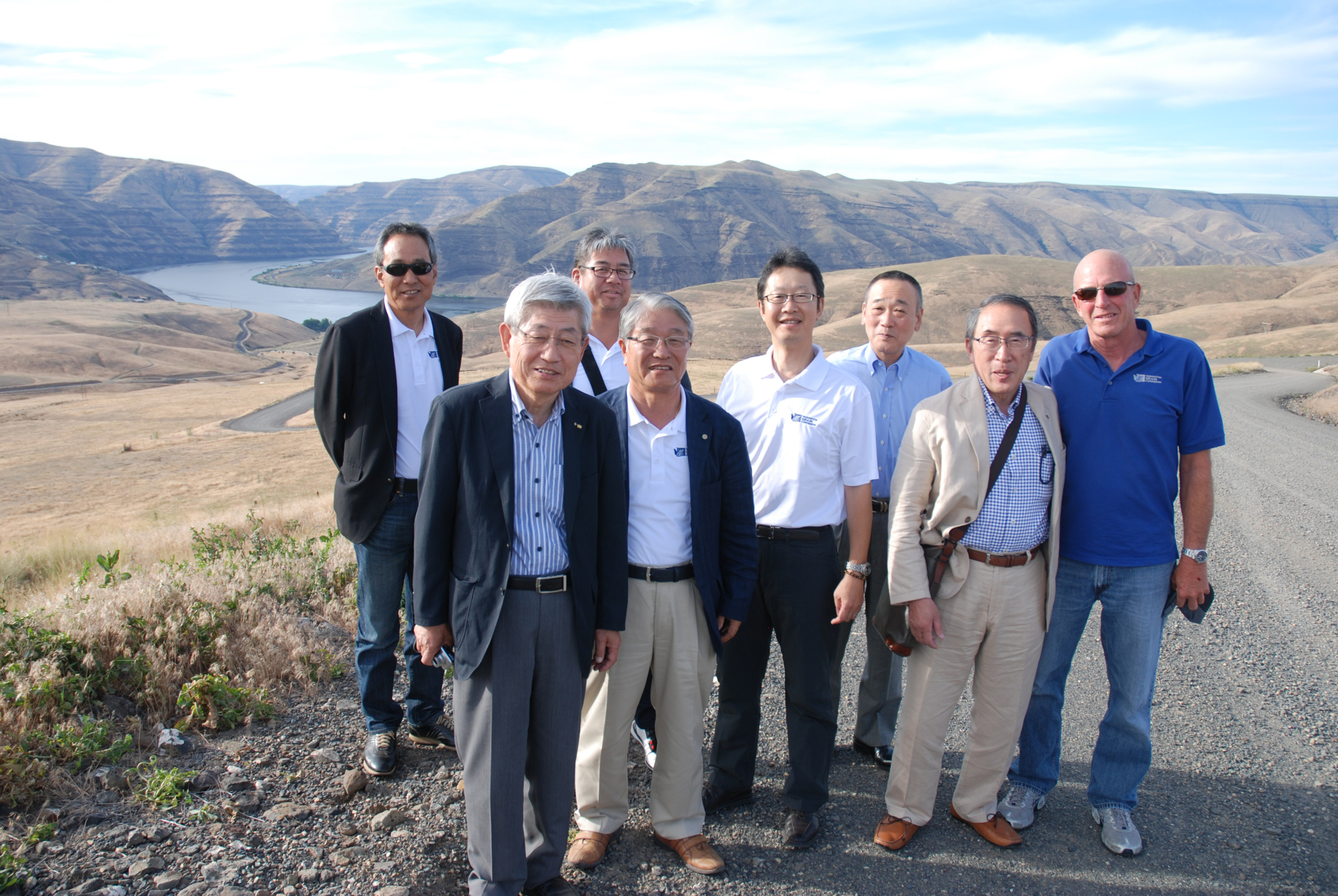The indelible link between the Japanese people and U.S. wheat producers began when the Oregon Wheat Growers League (OWGL) organized a trade delegation visit in 1949. Today, Japan is a mature, but very sophisticated market that must import most of its milling wheat. By providing critical, timely information about U.S. wheat and related market issues, Foreign Agricultural Service (FAS) cooperator U.S. Wheat Associates (USW) is helping maintain a majority market share in a critical market with 2014/15 imports equal to more than 10 percent of total U.S. wheat exports.
Japan’s Ministry of Agriculture, Forestry and Fisheries (MAFF), grain traders, millers and bakers are pressed by consumers to consistently deliver excellent quality, uniformity, variety and safety. They must be prepared to defend their work. That is why USW and its state wheat commission members focus activities there on helping buyers understand the quality of every wheat crop, keeping both Japanese government and millers informed about market and policy developments and collaborating in detail on any food safety related concerns.
For example, according to the Japan Consumer Affairs Agency, buckwheat is among seven potential allergens that can produce severe reactions. USW works with state commissions to provide assurance that imported U.S. wheat meets the market’s “no-buckwheat” demand. Together they travel to Japan to fully understand the issue from the customers’ point of view. They help farmers adopt practices to keep buckwheat out of wheat crops.” And in 2015, they hosted on-farm visits to show Japanese miller why there is a low risk of seeing buckwheat in U.S. wheat shipments.
Another example developed in 2013 following the discovery of wheat plants with an unapproved genetically modified (GM) trait in a single field in Oregon. From the start, FAS, USW, the U.S. commercial grain trade, state wheat organizations and wheat farmers took this unusual situation very seriously. Their work helped identify and share the most accurate information from the ongoing APHIS investigation to buyers, government agencies and end users. While MAFF temporarily suspended new purchases of U.S. Western White, a sub-class of soft white (SW) wheat, the reasoned response to the incident provided the assurance MAFF needed to quickly resume Western White tenders and minimize the market disruption.
This consistent level of service, supported by MAP and FMD funds, helped protect U.S. wheat sales in the face of aggressive competition from Canada and Australia. Income from Japan comes back to wheat farmers and the wheat supply chain in the Pacific Northwest and farmers in Washington, Oregon, California, Montana, Wyoming, North Dakota, South Dakota and Nebraska.


